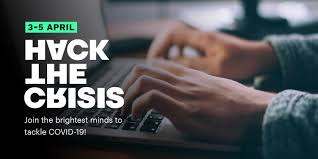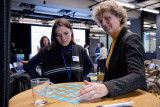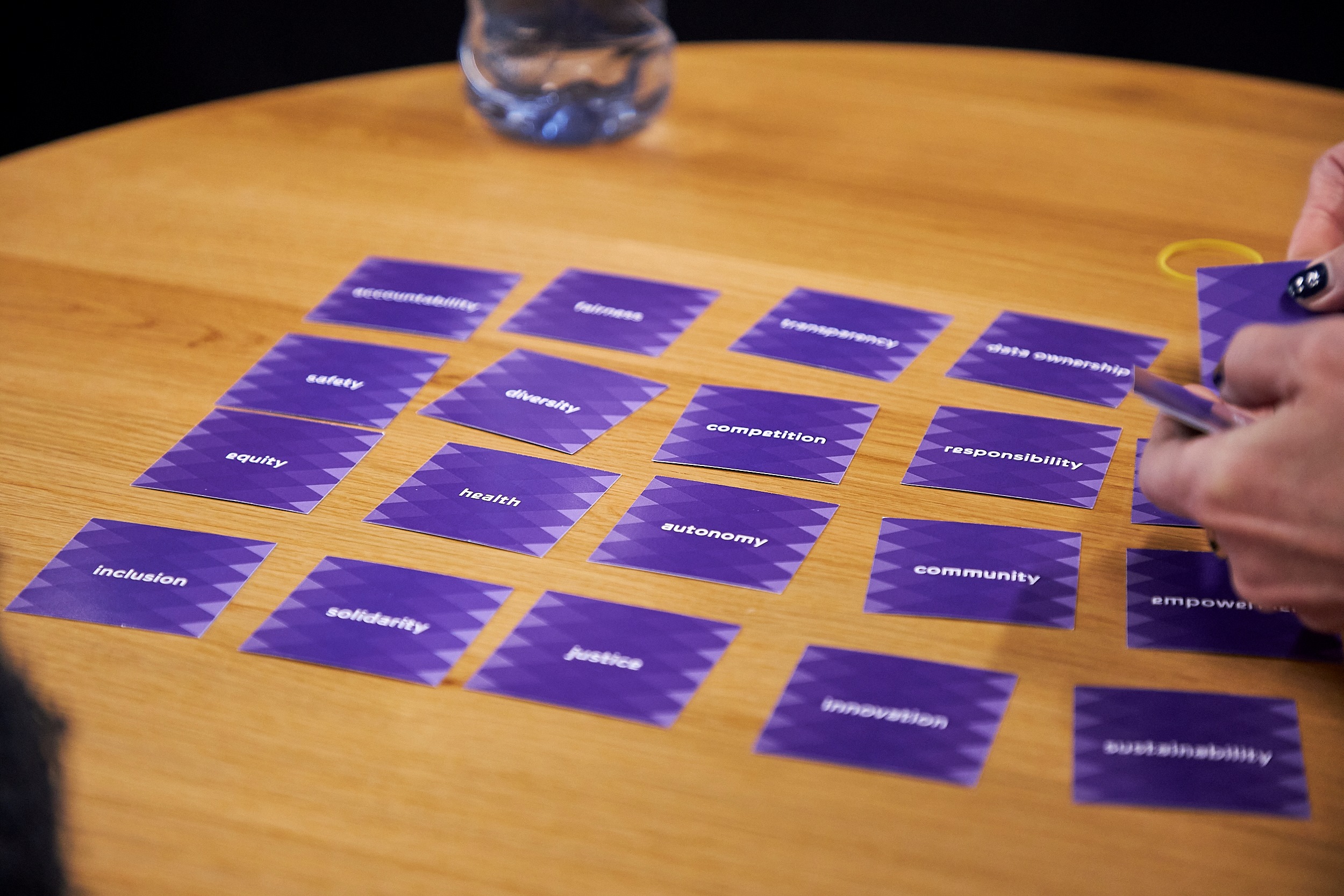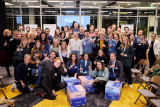Last weekend I participated in the Dutch edition of #HacktheCrisis as mentor on behalf of Amsterdam Smart City. The event was initiated by TNW, Innofest, StartupAmsterdam and Brain Fuel, with support from over 130 organizations.
#Hackthecrisis is a global hackaton movement which started in Estonia three weeks ago and spread to nearly 70 countries. The goal is to come up with solutions to the COVID-19 crisis.
The 48-hour hackathon attracted approximately 600 participants and 200 mentors working on four challenges: health & wellbeing, logistics, remote education and SME’s business continuity.
For many, including mentors, judges and organizers, this was their first virtual hackaton, powered by Slack and other digital tools.
The output: 55 solutions submitted via the F6S platform, accompanied by a 3 minute pre-recorded video-pitch. Pitches were assigned to mentors for review and evaluation based on the following criteria: 1.Problem & Impact, 2. Design & Technical Aspects, 3. Originality, 4. Feasibility, 5. Business Model and 6. Money Usage. A panel of judges deliberated over the top three finalists per theme before announcing the winners via live stream.
And the winners are…
Challenge 1: Logistics & Supply Chain
Winner: PPlCert -- Peer-to-peer platform for medical equipment
In this category, many groups tried to tackle the shortage of protective equipment in hospitals. Because supplies have to be sourced quickly, following a traditional procurement process is not feasible. At the same time, healthcare professionals and institutions have to ensure that products flooding the market meet necessary standards and are actually safe. The winning team developed "PPlcert" - a peer-to-peer platform where healthcare professionals can review and validate products, increasing transparency and reliability. Similar to Airbnb or Uber, anyone purchasing equipment can rate the product, enabling healthcare organizations to learn and benefit from each other’s experience.
Challenge 2: Remote Education
Winner: Ediya – Using gamification to keep students motivated
In this category, the winning team identified a key challenge with remote learning: keeping students motivated and engaged. This led to the development of the platform “Ediya” where teachers keep their students motivated through fun challenges. The platform is easy to use and enables teachers to learn from and adopt each other’s challenges, improving the performance of students and teachers alike.
Challenge 3: SME Business Continuity
Winner: Roodkappje – Local volunteers supporting small food suppliers
In this track teams tried the address the challenge of many small business being closed and facing bankruptcy. To tackle this problem, the winning team came up with "Roodkappje" – an app which matches small food suppliers with local volunteers who deliver meals to people who are not able or don’t dare to leave their homes. The app creates “missions” -- orders that must be delivered to customers. Local volunteers deliver orders to stay fit and help their local bakery or restaurant survive the crisis.
Challenge 4: Healthcare & Wellbeing
Winner: AnalysisMode – Cracking a vaccine through gamification
This challenge saw the most number of participants and submissions which is logical as COVID-19 is first and foremost a medical emergency.
The winner in this category was "AnalysisMode" - a collaborative platform accelerating the development of a vaccine with the help of willing citizens. Anyone can help by playing a game that identifies patterns which will later be used to teach an artificial intelligence (AI) to predict vaccine formulas. To date, the game has been played more 7,000 times by people from 93 countries. The team is already working with University of Oxford and others to develop the solution further.
Honorable Mention: Smart Quarantine
Although not a winner, "Smart Quaratine" deserves a mention for tackling a very urgent problem. The solution builds on contact-tracing solutions implemented in Singapore and the Czech Republic. The team proposes the development of a GDPR compliant and privacy-preserving solution for the government and citizens. This solution enables a data-driven, or “smart” lockdown in order to restart the economy while preventing a second wave of the epidemic.
The app tracks the people you have been in contact with and asks for your permission to share this data with relevant agencies and anyone you might have been in contact with if you test positive. The app also shows concentrated areas of activity and impacts on various professions and regions, providing insights into whether it’s safe to visit certain locations. This type of solution is key to finding a balance between protecting lives and livelihoods by ending the general lockdown and restarting the economy while also preventing a second wave of infection.
Next Steps
As hackers will often tell you, success is 10% idea and 90% implementation. In order to make an impact in the short-term, several organizations, including Yes!Delft, Smart Health Amsterdam and Sanquin will work with the winning teams to implement their solutions.
To support the further development of all initiatives, Corona Community Care was launched - an open platform where anyone can share their idea. The platform also matches startups to mentors from the likes of EY, Uniliver, Accenture and Booking.com.
Hack the Crisis wrapped up with a special announcement from the president of Estonia, calling on hackers to participate in the Global Hack, April 9-12. Having emerged as a global digital leader, Estonia’s initiative is a great example of how we can leverage the power of digital, collaborative innovation during these unprecedented times.
I came away from the weekend feeling inspired by what can be achieved in 48 hours and energized by the idea that the COVID-19 crisis might pave the way for radical collaboration models.
- Finale live stream
- TNW Press-release (in Dutch)






